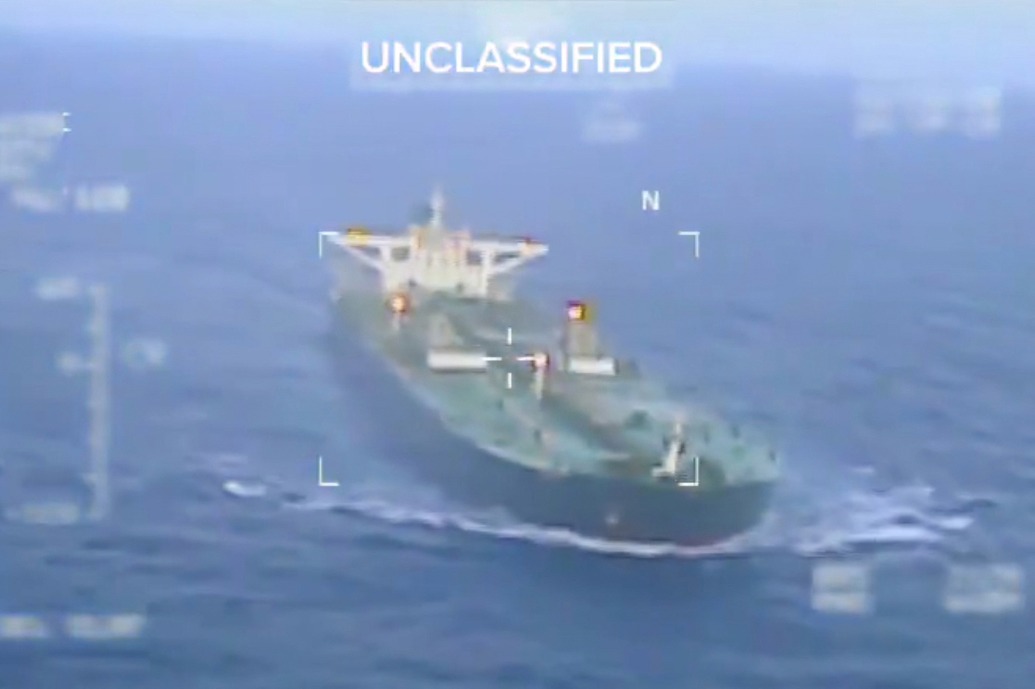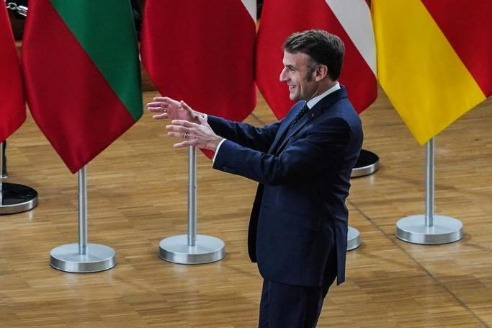Insurance guards BRI projects


Sinosure gives overseas ventures a sure footing in evaluating potential risks
The 752.7-kilometer-long Addis Ababa-Djibouti Railway spans from Addis Ababa, the capital of Ethiopia, to the port of Djibouti, shortening the original seven-day drive to 10 hours. It cuts the transportation cost by half compared with road transportation.
The transnational electrified railway, built by the China Civil Engineering Construction Corporation, or CCECC, has been hailed by locals as a remarkable project of the Belt and Road Initiative as it has promoted regional connectivity and economic development since its official opening on Jan 1, 2018, for commercial operations.
However, few might know the smooth construction and operation of the railway was possible due to China's policy-oriented insurance that covered the project's financial risks.
The total cost of the project was about $4 billion, with a Chinese bank providing finance and China's only policy-oriented insurer China Export and Credit Insurance Corporation, or Sinosure, providing credit insurance.
Chen Sichang, general manager of the CCECC, said that Chinese companies venturing abroad may confront unforeseeable political risks such as wars, riots, or exchange restrictions.
They may also encounter commercial risks such as poor business practices, insolvency, and intentional nonpayment, potentially resulting in losses that are difficult for companies to bear.
"Sinosure's export credit insurance provides a safety net for enterprises involved in trade by compensating for both political and commercial risks. This ensures businesses can continue to operate and grow steadily over time," he said.
Chen said Sinosure's insurance could also help facilitate fund flows to support overseas market expansion.
"Policy-based export credit insurance enhances credit (worthiness) of the enterprises and effectively improves accessibility and security of enterprise financing," he said.
Moreover, it facilitates financing by transferring risks, helping enterprises and banks establish financing structures, and making banks more willing to provide loans with potentially more favorable interest rates, he added.
Under the Belt and Road Initiative, the CCECC and Sinosure have been cooperating in business since 2013, with a total of six medium- and long-term projects and a total insured amount of $2.898 billion. There have also been 19 special insurance projects with a total insured amount of $5.054 billion.
China's policy-oriented insurance has become an important tool for enterprises participating in the Belt and Road Initiative to evaluate potential risks, seek financing, and avoid economic loss.
Over the past decade, Sinosure has signed cooperation agreements with government departments, financial institutions, and peer institutions in more than 40 countries. It has supported countries involved in the BRI to the tune of more than $1.9 trillion in exports and investments.
Sinosure has also built a financing bridge for the joint construction of the BRI. It has established business cooperation with more than 240 banks, signed framework and special cooperation agreements with 39 Chinese banks, and guided various cooperative banks to provide financial support to export enterprises and BRI projects.
China Harbour Engineering, or CHEC, has invested in and operated the Lekki Deep Sea Port in Lagos, Nigeria. In 2021 and 2022, Sinosure issued overseas investment insurance policies for its equity and debt with a total insured amount of nearly $900 million.
Bai Yinzhan, president of the CHEC, said that since the BRI was put forward 10 years ago, remarkable achievements have been made. However, in the face of profound and complex changes in the world situation, the company attaches great importance to relevant risks, to ensure steady and long-term high-quality development in the construction of the BRI.
Since 2009, a total of 23 cooperation projects of the company in 13 countries have been insured by Sinosure, with a total insured amount of nearly $5.8 billion.
According to Bai, the main risks for the company are macroeconomic risks, and investment and financing risks, such as lack of momentum in global economic growth, increasing pressure on national debt, and financing exchange rate risks caused by foreign exchange reserves.
The other risks include geopolitical and security risks. Instability and leadership change too are prominent risks.
Effective tool
Bai said policy-oriented insurance is an important tool for enterprises to identify and manage risks, as Sinosure provides customized risk assessment information services for specific countries, industries, and buyers.
Both companies have established an electronic data interchange system for better sharing information with each other, which allows for dynamic tracking, analysis, early warning, and evaluation of risks.
Sinosure products help enterprises diversify operational risks. The company's special insurance provides guarantees for payment, medium- to long-term insurance covers loan agreements, and overseas investment insurance covers political risks.
"These are the most effective risk management tools in the project implementation and management process," he said.
By leveraging Sinosure's resources in banks and the industrial chain, the company can better develop cooperation with the destination country and the third party, Bai added.
The China Road and Bridge Corporation, or CRBC, has been working with Sinosure since 2012. Over the years, they have collaborated on long-term insurance, overseas investment insurance, and export special insurance in 30 projects across 13 countries, with a total insured amount exceeding $20 billion.
Du Fei, president of the CRBC, said transportation infrastructure construction projects usually need large amounts of investment, take a long time for payback, and financing is difficult to obtain.
The BRI covers a vast area, and the countries involved have great differences in politics, economy, religion, culture, science, and technology.
"China's policy-oriented insurance has played an important role, providing all-around support in risk protection, financing promotion, market development, loss compensation, and information services," he said.
He Yun, an associate professor in the School of Public Administration at Hunan University in Changsha, said that in some developing countries, security risks, including regional turbulence, extremism, war, and terrorism, as well as political risks such as leadership change, democratic movements, and ethnic divisions, pose significant challenges for enterprises. In addition, economic risks stemming from currency devaluation, inflation, and high debt, as well as legal risks further complicate the landscape.
She said the increasing adoption of Chinese policy-oriented insurance by Chinese companies for their overseas investments demonstrates that they have become sophisticated international entities, and have developed experience and expertise in managing cross-border investments and entering new markets abroad.
































